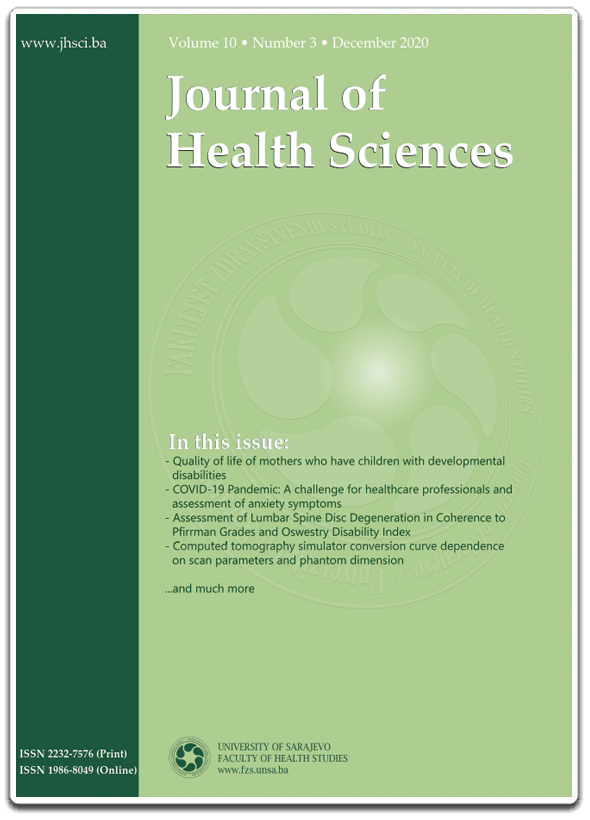Incidence of impacted mandibular third molars in population of Bosnia and Herzegovina: a retrospective radiographic study
DOI:
https://doi.org/10.17532/jhsci.2013.80Keywords:
impacted mandibular third molars, incidence, Bosnia and HerzegovinaAbstract
Introduction: Impaction may be defined as the failure of complete eruption into a normal functional position of one tooth within normal time due to lack of space in the dental arch, caused by obstruction byanother tooth or development in an abnormal position. The mandibular third molar is the most frequently impacted tooth. The incidence varies from 9.5% to 68% in different populations.
Methods: The study was conducted in Department of Oral Surgery, Faculty of Dentistry, University in Sarajevo. Study represents retrospective analysis of panoramic radiographs (orthopantomograms) of patients
referred to Department of Oral Surgery from January 2010 to February 2013 with indication for surgical removal of impacted third molars.
Results: Of the 2000 radiographs, 761 presented with at least one impacted third molar (38%). A total of 1034 impacted mandibular third molars were present (51.7%). The most common age group was third
decade (61.2%). Signifi cant statistical difference in incidence of third molar impaction was found between females and males (p<0.05), but there was no statistical difference in incidence in urban and suburban
population (p=0.374). Vertical angulation was the most common pattern of impaction (65%). Frequency of third molars erupted into their normal position (class IA) was 42%. Impacted mandibular molars were
associated with periodontal pockets in 134 (6.5%) cases and with dentigerous cysts in 5 cases (0.2%).
Conclusion: The present study provides useful data regarding the clinical status of third molars in population of Bosnia and Herzegovina.
Downloads
Download data is not yet available.
Downloads
Published
15.09.2013
Issue
Section
Research articles
How to Cite
1.
Incidence of impacted mandibular third molars in population of Bosnia and Herzegovina: a retrospective radiographic study. JHSCI [Internet]. 2013 Sep. 15 [cited 2026 Feb. 13];3(2):151-8. Available from: https://jhsci.ba/ojs/index.php/jhsci/article/view/116










